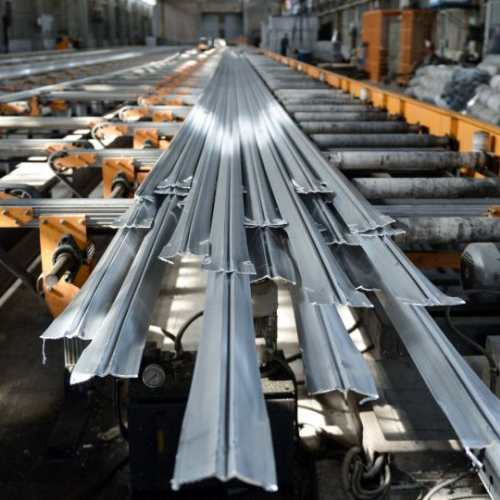European Union (EU) officials have agreed on a fresh round of sanctions against Russia, marking the 16th package of economic and trade restrictions since the start of the Ukraine conflict. The latest measures, which are expected to be officially adopted by EU foreign ministers soon, include a ban on Russian aluminium imports, restrictions on gaming consoles, and further actions against what is known as Russia’s “shadow fleet”—a group of vessels used to bypass sanctions.
These new rules are designed to make it harder for Russia to continue its military operations by targeting crucial industries and limiting its ability to evade previous restrictions. The EU, along with other Western countries, has been steadily increasing economic pressure on Russia since the invasion of Ukraine, hoping to weaken its ability to fund and sustain the conflict.
Aluminium Ban and Other New Restrictions
One of the most significant moves in this new package is the ban on importing Russian primary aluminium. Aluminium is a widely used metal in industries like construction, car manufacturing, and electronics. This ban, however, will not take effect immediately—it will be phased in over a year to give businesses time to adjust.
In addition to aluminium, the EU has also agreed to stop the sale of video game consoles, joysticks, and flight simulators to Russia. This decision was made because some of these items can be used in military operations, including controlling drones, which Russia has been using in the war.
Russia Sanctions Crisis : Romanian MEP Urges EU to Drop Restrictions Amid Economic Struggles
Further restrictions will also apply to the export of chromium and certain chemicals, as well as services related to Russia’s oil and gas refineries. These industries are vital to Russia’s economy, and the EU aims to make it more difficult for them to function smoothly.
Crackdown on Russia’s “Shadow Fleet”
A major focus of this new sanctions package is on Russia’s “shadow fleet.” This refers to a group of ships—many of them oil tankers—that Russia uses to sell oil outside the price cap set by Western nations. The EU is now adding 73 more vessels to its blacklist, bringing the total number of sanctioned ships to 152.
These vessels are believed to be helping Russia move oil in ways that allow it to avoid existing sanctions. Some of them are also being used to transport ammunition and other military supplies from countries like North Korea. By targeting these ships, the EU hopes to make it harder for Russia to fund its war efforts.
To strengthen its control over the shadow fleet, the EU is also introducing new rules that will allow it to sanction not just the ship owners but also operators, captains, and anyone who provides services that help these ships function. This is expected to make it much riskier for anyone involved in helping Russia bypass economic restrictions.
Stronger Measures to Restrict Russian Trade
The new sanctions are part of a broader effort by the EU and its allies to limit Russia’s ability to continue its military actions. Over the past few months, Europe and the United States have increased restrictions, particularly focusing on Russia’s energy exports, which provide a major source of funding for its government.
EU Hits Back: 25 Chinese Entities Accused of Violating Russia Sanctions
One of the additional measures in this package is a ban on transactions involving Russian ports and airports that are used to work around sanctions on oil sales. By doing this, the EU aims to close loopholes that Russia has been using to continue trading despite international restrictions.
In addition to targeting businesses and individuals involved in the war, this latest package of sanctions also adds 48 people and 35 companies to the EU’s blacklist. This means that those included will face asset freezes and travel bans, making it difficult for them to conduct business internationally.
With these new measures, the EU is reinforcing its stance against Russia’s actions in Ukraine, ensuring that those who attempt to bypass existing sanctions will face even greater consequences. The restrictions on aluminium, gaming equipment, and oil transport are expected to have a significant impact on Russia’s economy and military operations.


